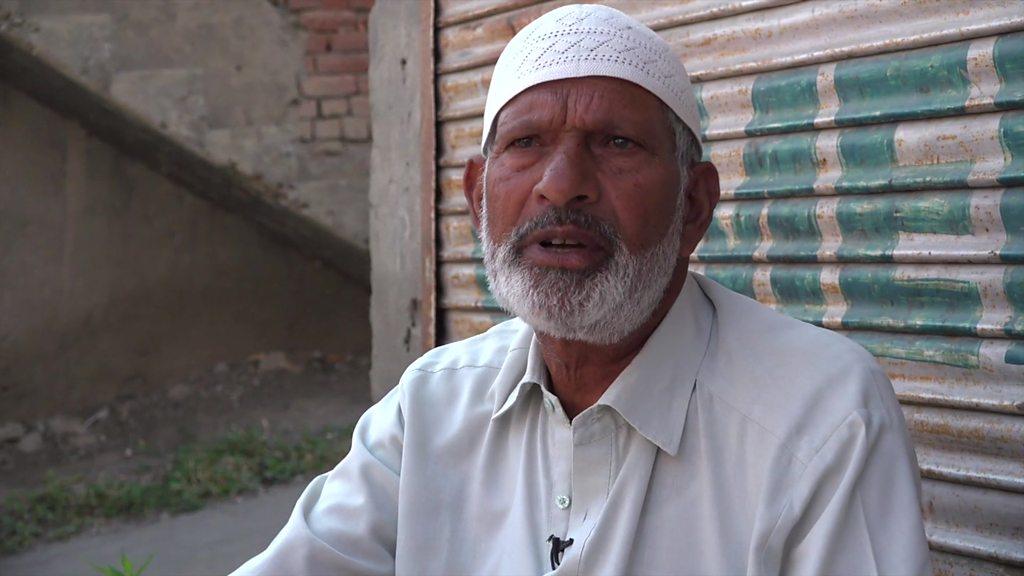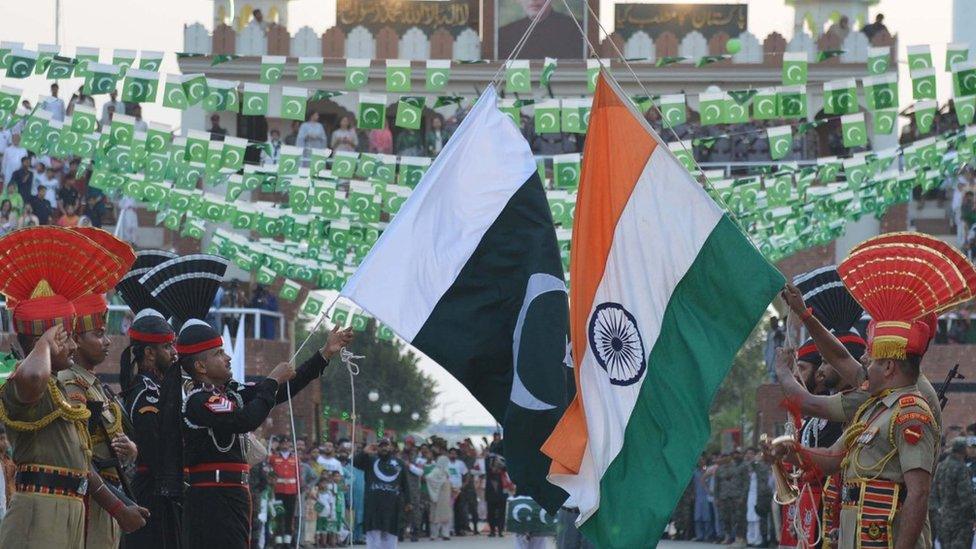Kashmir dispute: Residents attend Friday prayers amid lockdown
- Published
Young Kashmiris on India's decision: "We've been pushed back into medieval times"
A security lockdown in Indian-administered Kashmir remains largely in place although residents have been allowed to attend Friday prayers in some local mosques.
However the main mosque in Srinagar is closed and tight restrictions continue.
Thousands of troops are still patrolling the streets four days after the Indian government revoked the Muslim-majority state's autonomy.
The area has been under a virtual communications blackout since Sunday.
Some people have reported that they are now able to access the internet, and mobile phone signals appear to be active in some parts of Srinagar - the main city in Indian-administered Kashmir. But connectivity is yet to be fully restored.
However, the BBC's Aamir Peerzada in Srinagar says that a curfew imposed on Monday remains in place. PM Narendra Modi has promised Kashmiris that they will be able to celebrate the religious holiday of Eid al-Adha on Sunday.
India deployed tens of thousands of troops to Muslim-majority Kashmir ahead of Monday's announcement that Article 370 - as the constitutional provision granting the region special status is known - was to be revoked.
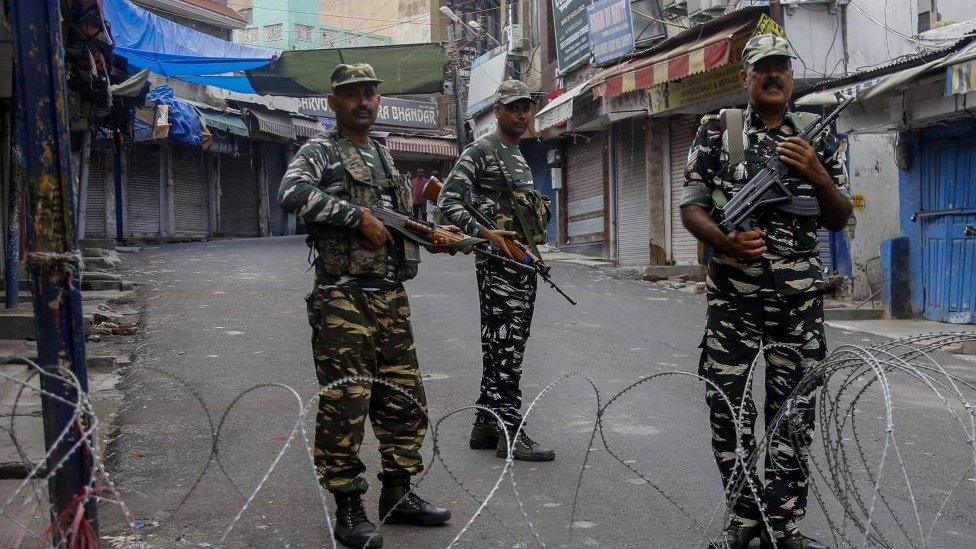
There are tens of thousands of troops in the region
Since that controversial announcement, it has detained hundreds of people including politicians, activists and academics in makeshift centres in an effort to quell protests.
But sporadic violence has already broken out. BBC reporters saw some protesters throwing stones at security forces, and spoke to residents who said they feared that the situation could worsen significantly.
In the past, Kashmir has witnessed protests after Friday prayers.
Baramulla resident: 'Our livelihood is affected, nobody is at peace'
Despite an earlier police announcement about the easing of restrictions to facilitate prayers, Jama Masjid, Srinagar's largest mosque, remains closed.
Correspondents say that this was ostensibly to avoid the gathering of a large crowd that could potentially turn violent.
It's unclear if the mosque will open on Sunday for the beginning of Eid. A decision to keep it closed could trigger protests.
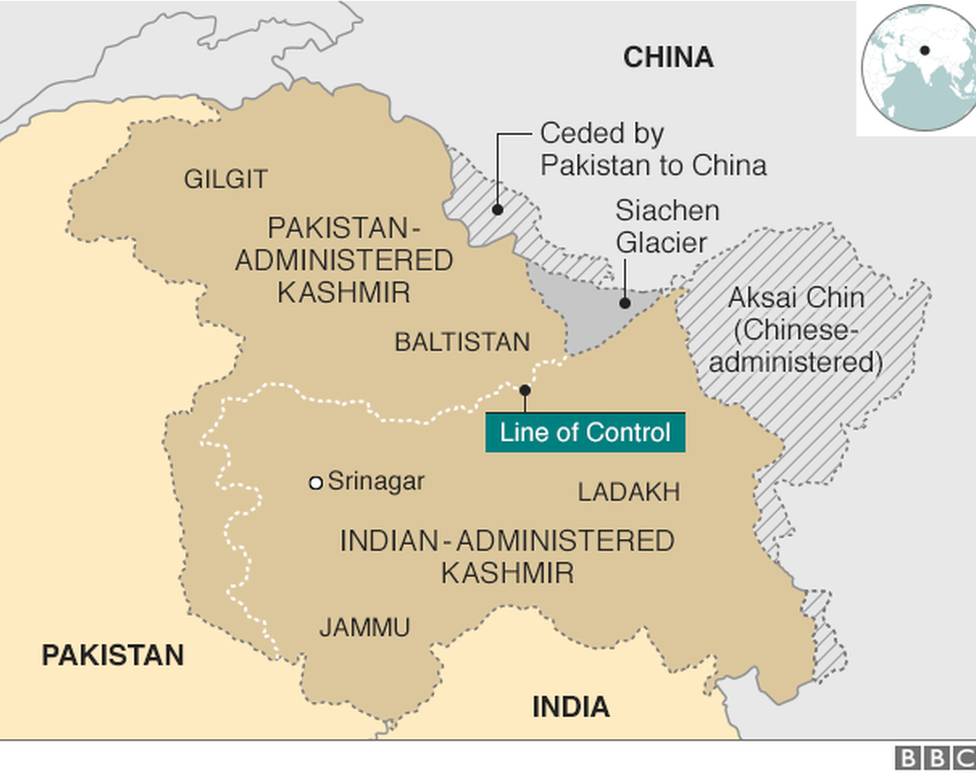
Delhi has had a tumultuous relationship with the valley for decades - there has been an armed insurgency against Indian rule there since 1989, with thousands of lives lost. Massive protests have regularly broken out and Indian security forces have repeatedly been accused of human rights abuses in putting down demonstrations.
Prime Minister Narendra Modi appeared on state media on Thursday to defend his government's highly controversial decision and said a "new era" was beginning for the region, where "hindrances" to its development had been lifted.
"There will be a lot of development," he said. "All the citizens will be given their rights."
'Kashmir is a volcano waiting to erupt'
Why is Kashmir controversial?
Kashmir is a Himalayan region that both India and Pakistan say is fully theirs.
The area was once a princely state called Jammu and Kashmir, but it joined India in 1947 when the sub-continent was divided up at the end of British rule.
India and Pakistan subsequently went to war over it and each came to control different parts of the territory with a ceasefire line agreed.
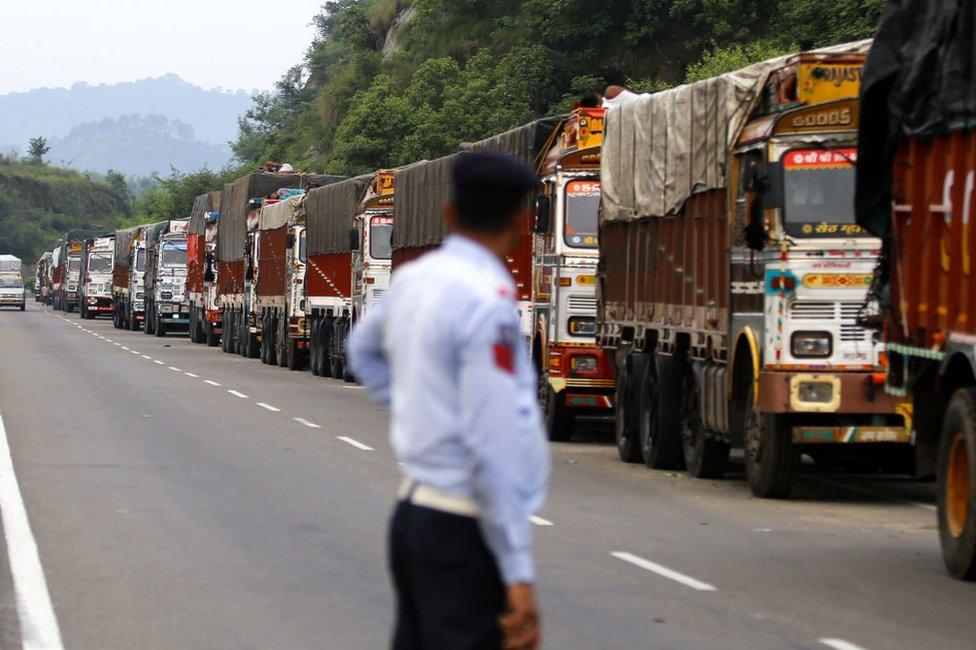
The lockdown has left trucks stranded on the Jammu-Srinagar highway
How significant is Article 370?
The article allowed the state a certain amount of autonomy - its own constitution, a separate flag and freedom to make laws. Foreign affairs, defence and communications remained the preserve of the central government.
As a result, Jammu and Kashmir could make its own rules relating to permanent residency, ownership of property and fundamental rights. It could also bar Indians from outside the state from purchasing property or settling there.
The constitutional provision has underpinned India's often fraught relationship with Kashmir, the only Muslim-majority region to join India when the sub-continent was partitioned.
- Published8 August 2019
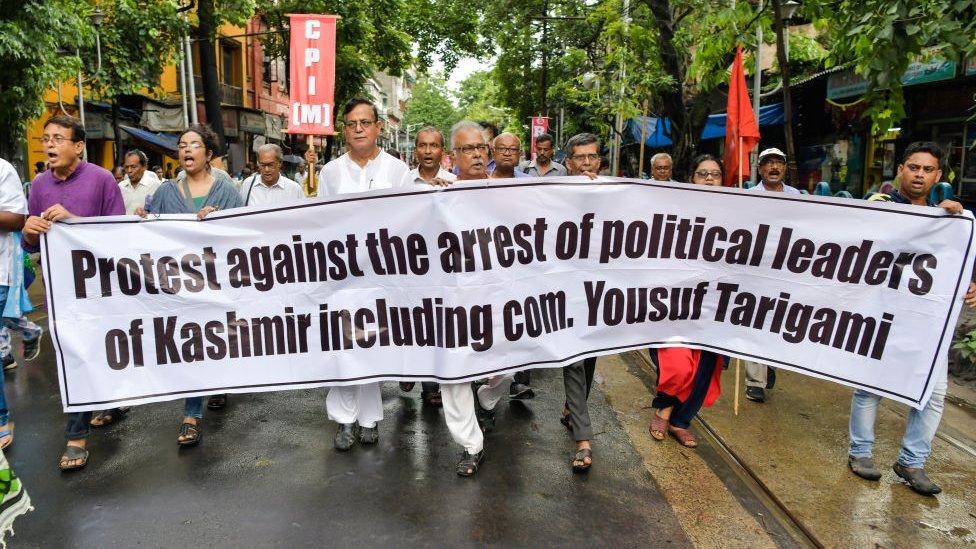
- Published14 May 2018
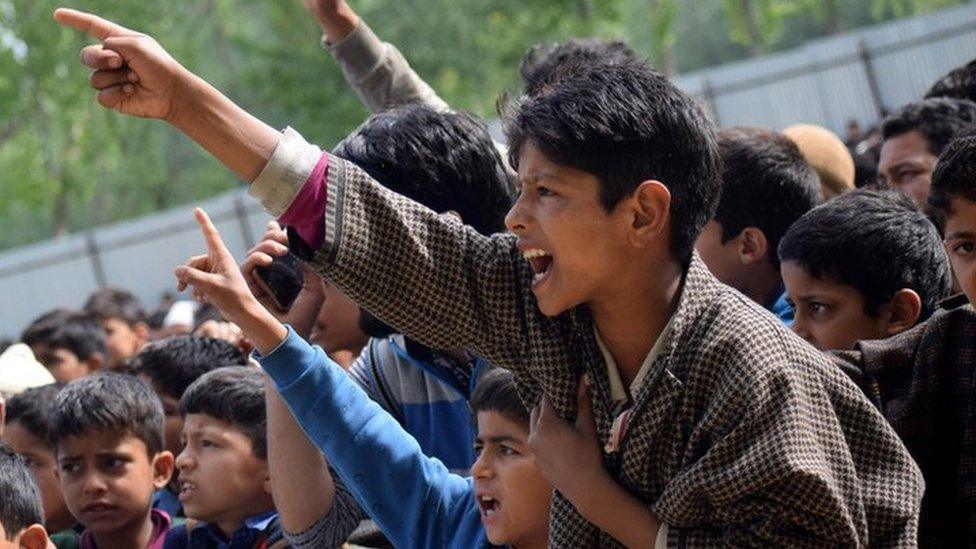
- Published9 August 2019
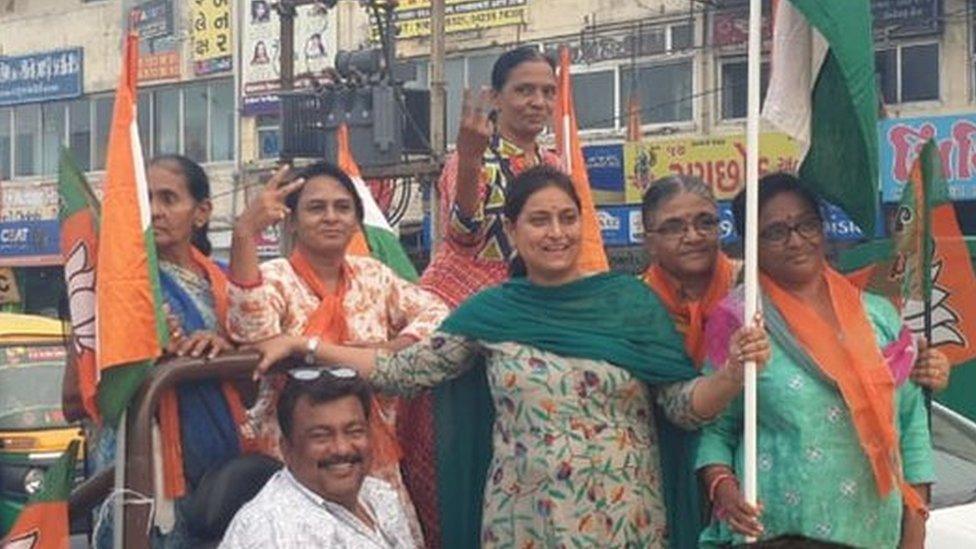
- Published5 August 2019
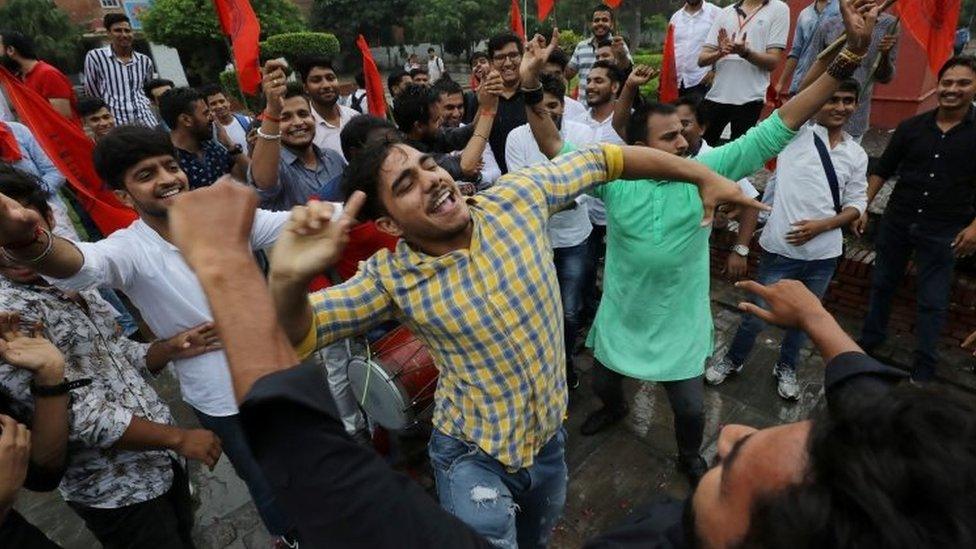
- Published6 August 2019
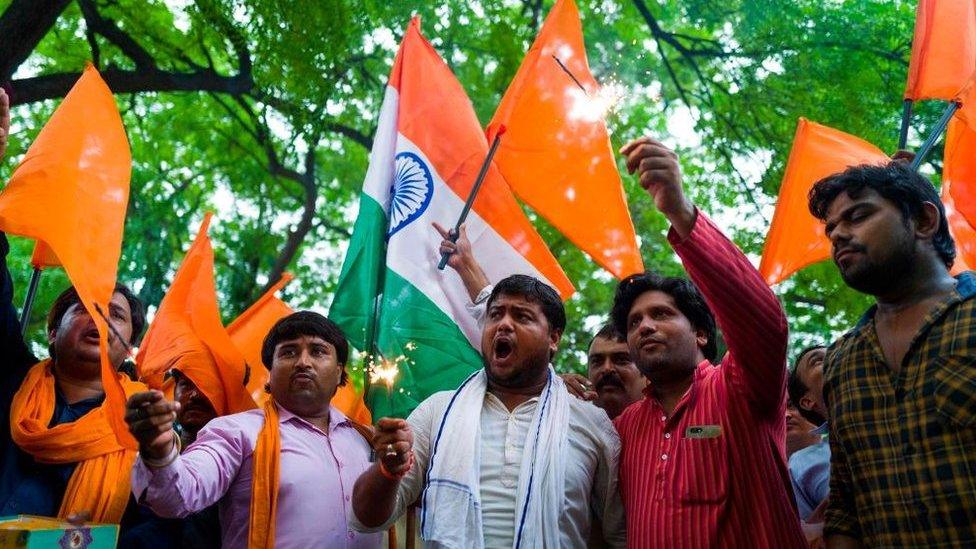
- Published5 August 2019
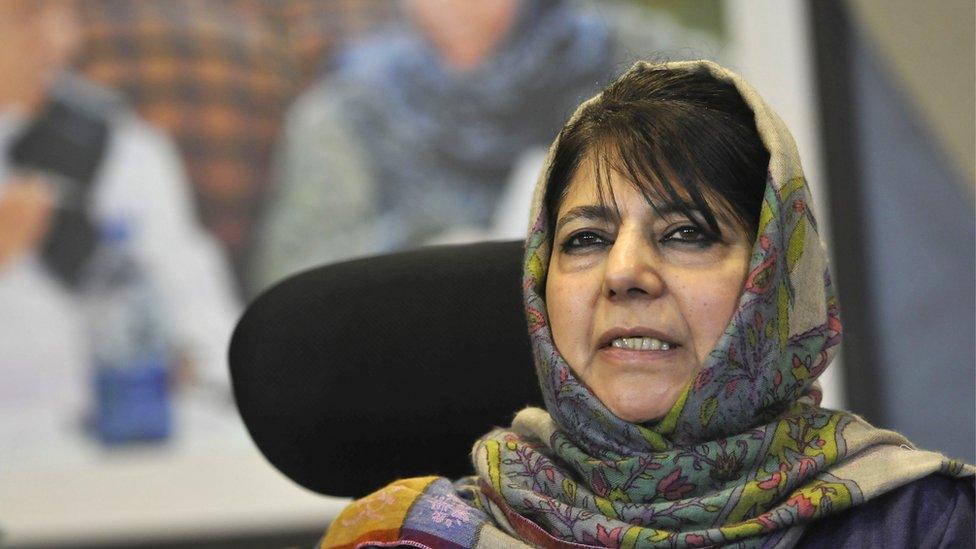
- Published8 August 2019
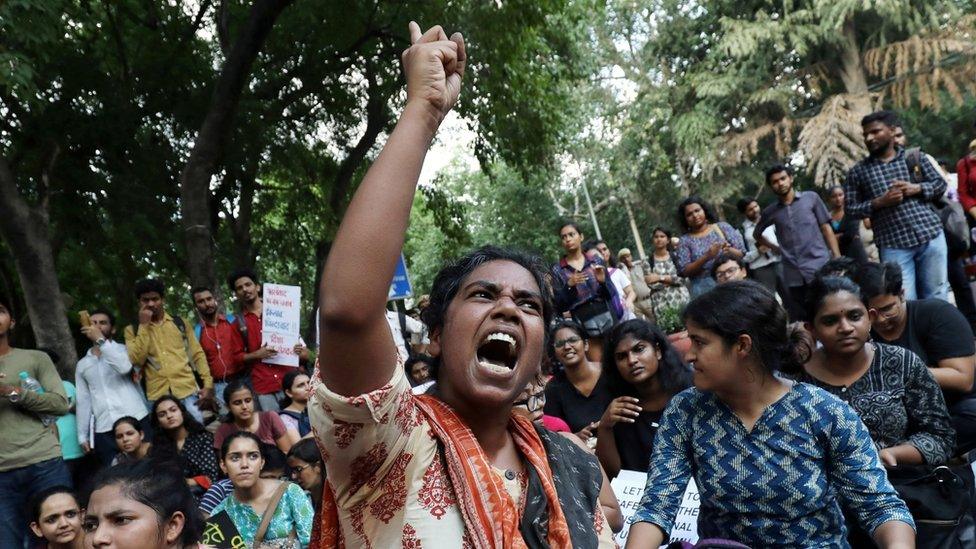
- Published7 August 2019
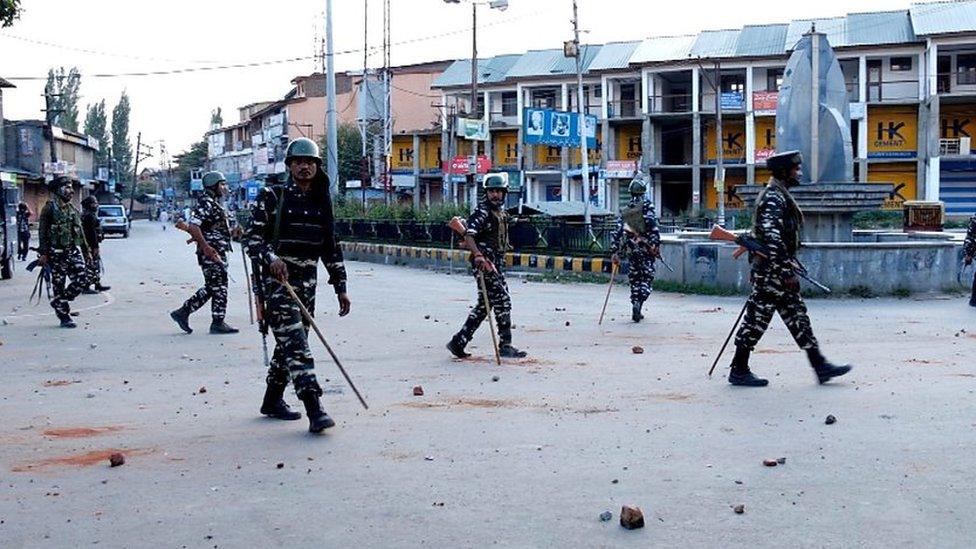
- Published6 August 2019
